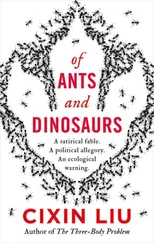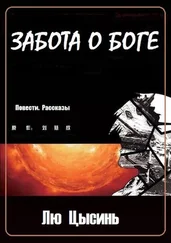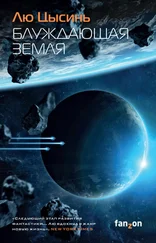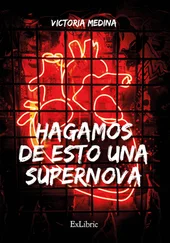* * *
The next day, children in critical systems like power, transportation, and telecommunications remained in their posts, but the vast majority of children didn’t go to work. For a second time, the children’s country fell into paralysis.
Unlike the Suspension, this time there weren’t many warning reports. In the NIT office, the child leaders held an emergency meeting, but no one knew what to say or do. After a long silence, Huahua pulled a pair of sunglasses from out of a drawer and said, “I’ll go have a look.” Then he walked out.
When he left the building, he found a bicycle and took it down the avenue. There were as many kids out today as the day before, and they looked even more excited. He parked his bike outside a shopping center. The door was open, and children were going in and out, so Huahua joined them. Lots of children were inside, most of them at the shelves, all of them picking out things they liked.
An electric toy car came squealing along and disappeared under a shelf. Looking back in the direction it came, he saw another shelf of toys, a dense crowd of kids, and toys strewn all over: cars, tanks, and robots careered about and knocked down teetering piles of dolls, to cries of delight. They had come to find toys they liked, but on realizing there were more wonderful things than they could carry off, decided to play with them here. The children were younger than Huahua, and as he passed among them and saw them messing with high-end toys, he was reminded of the world described in the New Five-Year Plan the previous day. He was over the age of being fascinated with toys, but he could appreciate these kids’ enthusiasm.
The children seemed to have separated themselves into two groups, each doing their own thing. One group had assembled fairly large armies out of electric toys: hundreds of tanks and other battle vehicles, a hundred-odd fighter jets, a huge crowd of robots, and tons of weird, nameless weapons, all laid out before them on the terrazzo floor in a flashing, clattering mess.
In front of Huahua the tiny army made a majestic charge. The two lines met four or five meters away from him, clanging and smashing to the delight of the children. It was like they’d walloped a hornets’ nest; half the vehicles toppled and groaned in place, while the others were sent spinning off in all directions. The terrazzo battlefield was now littered with overturned electric cars and detached robot limbs.
Their first battle ended, the children’s enthusiasm was running high, but there wasn’t enough left on the shelves to stage a second engagement. Just then a boy raced in to tell them that he’d found the storeroom, and they all ran off after him. A short, hurried round of hauling later, a dozen crates of war machines and robots had arrived, and the shelves had been pushed aside for more room to fight. A new, larger battle commenced just a few minutes after that, one that carried on with fresh troops continually being added.
Another group was ensconced in a menagerie of stuffed animals and dolls, and had set them up into families sitting next to little houses built out of wooden blocks. The houses went up so fast that they had to push aside the shelves so they could start erecting a city on the floor, to be populated by fashion dolls.
As they looked in satisfaction over the world they had created, the war-hungry first group dispatched a dense phalanx of a hundred remote-controlled tanks that rolled into the charming kingdom without any resistance and flattened it.
Huahua went over to the food department, where a group of young gourmands were digging in. They were hard at work selecting choice delicacies, but they took just one bite of each so as to leave room in their stomachs for more. Littered about the counter and floor were fine chocolates with bites taken out of them, drinks uncapped but tossed aside after just one sip, piles of canned goods with just a spoonful missing from each. Huahua saw a group of girls standing beside a pile of rainbow-colored candies taking a peculiar approach to eating: they unwrapped each piece, gave it a quick lick, and then dropped it before finding another unopened one in the pile. Many of the children were already full but refused to give up, as if they were tied to some sort of torturous work.
He went out the door and ran smack into a four- or five-year-old girl, who dropped a huge armload of dolls, nearly twenty of them. She took the brand-new travel bag she had slung over a shoulder and threw it on the ground, and then sat there beating her legs and bawling. The bag, Huahua noticed, was overflowing with dolls large and small; he couldn’t imagine what she would do with them all. There were more children outside than there had been when he arrived, all of them in high spirits, and a majority of them carrying things that had caught their eye in the shops.
The return journey on his bike was slow, since the streets were full of children at play, as if the city street had been turned into a playground. Some kicked balls around, others played cards. He found children who had gotten cars started and were zigzagging down the road like they were drunk. Three boys sat atop one luxury sedan as others on the roadway dove for cover. The car didn’t get far before crashing into a van parked on the roadside, and the boys tumbled to the ground. The kids inside came out and burst out laughing at their companions struggling to crawl to their feet.
* * *
Back in the NIT, Huahua told Specs and Xiaomeng what he had seen outside, and learned from them that conditions were similar in other regions.
Xiaomeng said, “As we understand it, kids out there are taking anything they want as easily as drinking water or breathing air. Work stoppage means that state assets are unprotected, but oddly enough, no one is asserting property rights over assets that do not belong to the state, so no conflicts have arisen when children take things at will.”
Specs said, “That’s not hard to explain. Any losses to private property can easily be recouped elsewhere. That means an end to private property.”
Huahua was shocked. “So economic rules, and the whole form of ownership from the adults’ time, collapsed overnight?”
Specs said, “It’s an extraordinary situation. We’re living in a time of unprecedented plenty, on the one hand due to the drastic decline in population, and on the other, because of the adult society’s tremendous overproduction in the year since the supernova in order to leave behind as much as possible for the children. For today’s society, it’s like per capita material wealth went up by a factor of five or ten overnight! Economic structures and notions of personal ownership will undergo astonishing transformations in light of such fantastic wealth. All of a sudden we’re in a state of primitive communism.”
Xiaomeng said, “So we’re in the future, ahead of schedule?”
Specs shook his head. “This is just a temporary illusion, without a corresponding productive foundation. No matter how much the adults left behind, it’ll get used up eventually, and at that point, economic rules and personal ownership will return to normal, or even go backward. That process might even exact a price in blood.”
Huahua smacked his hand on the table. “We should have the army take immediate action to protect state assets!”
Xiaomeng shook her head. “We’ve deliberated this with the General Staff Department, and the unanimous feeling is that we have to pull the army out of the major cities first.”
“Why?”
“It’s an emergency right now, but the army is made up of kids, too. They’ll naturally be unprepared. To guarantee success, full preparations must be made to put the army into the best possible state. That takes time, but there’s no other way.”
Читать дальше
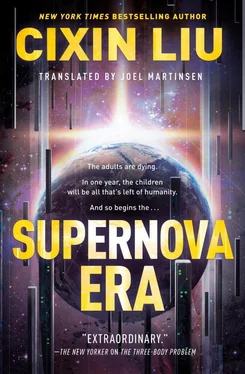
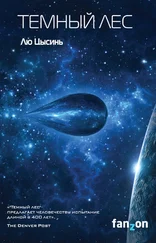
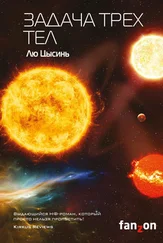
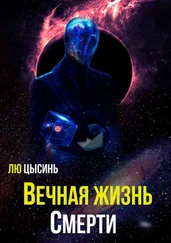
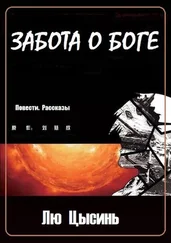
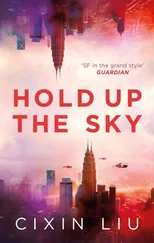
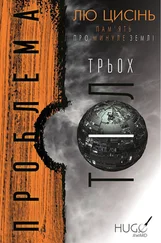
![Лю Цысинь - Эпоха сверхновой [litres]](/books/393110/lyu-cysin-epoha-sverhnovoj-litres-thumb.webp)
